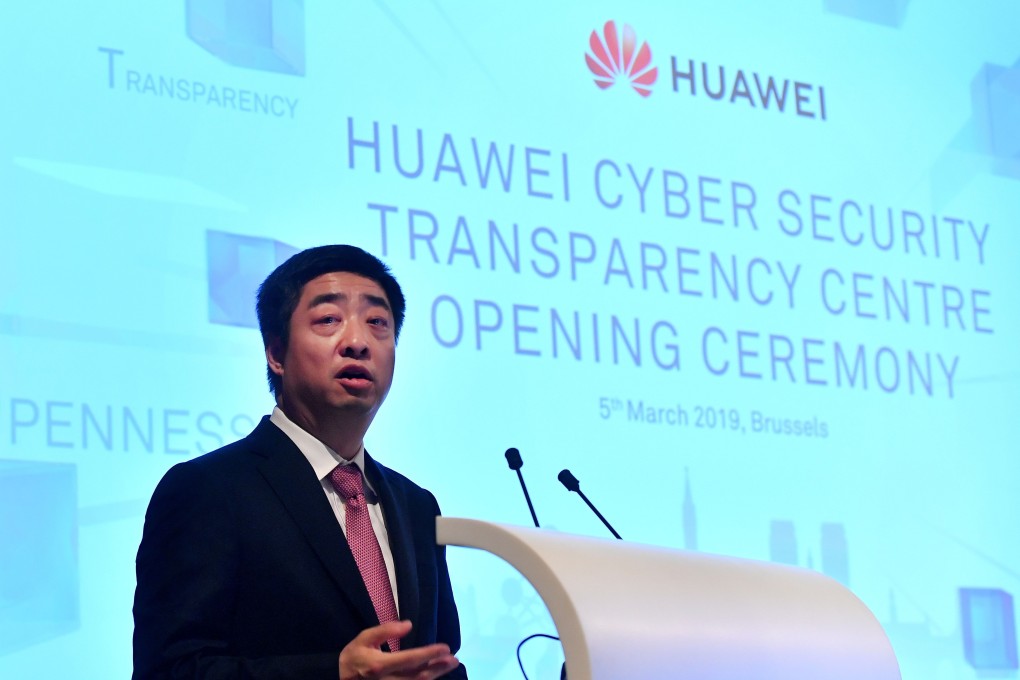Huawei opens cybersecurity centre in Europe amid US efforts to ban firm’s 5G network gear
- Chinese tech giant urges regulators, standards organisations and telecoms carriers to work together in the new facility

Huawei Technologies, the world’s largest telecommunications equipment supplier, opened its new Cyber Security Transparency Centre in Brussels on Tuesday, as the company pushes back on efforts by the US government to shut it out of 5G network gear markets around the world.
The centre aims to help build “a secure and trustworthy digital environment” in Europe, according to Huawei deputy chairman Ken Hu Houkun at the launch of the facility in the de facto capital of the European Union.
Hu urged regulators, standards organisations and telecoms network operators to use the centre “to collaborate more closely on security standards, verification and secure innovation”.
“Trust in cybersecurity is one of the major challenges that we face as a global community,” he said. “Trust needs to be based on facts. Facts must be verifiable and verification must be based on common standards.”
The launch comes after Guo Ping, one of three rotating chairmen at Huawei, defended the Shenzhen-based company’s track record in security at last week’s MWC Barcelona, the world’s biggest exhibition for the mobile industry, amid repeated accusations by the US government that its products can be used to spy for China.